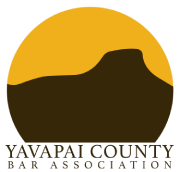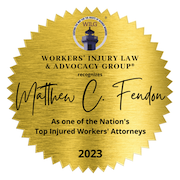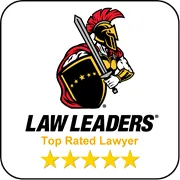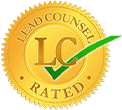When you are hurt in a workplace accident, workers’ compensation can help offset the financial costs of medical expenses and a portion of your lost income. Unfortunately, workers’ compensation is not always easy to obtain. Employers may dispute your claim because they do not want their insurance premiums to go up. The insurance company may dispute your claim because they prioritize profits over the health of employees. The Phoenix workers’ compensation lawyers at Matt Fendon Law Group are here to help you determine whether you are eligible for these benefits, and to hold insurers and employers accountable when you are. Contact us today for immediate assistance with your claim.
Who is Eligible to Receive Workers’ Compensation in Arizona?
You must meet three basic requirements to receive workers’ compensation benefits, which are:
- The employer must carry workers’ comp insurance: All businesses in Arizona are required to carry workers’ compensation insurance, even if they employ only one employee. All workers, regardless of whether they are full or part-time, must be covered.
- You must be an employee: Working somewhere does not automatically classify you as an employee. Independent contractors, occasional and casual workers, and domestic workers are typically not covered by workers’ compensation in Arizona.
- Your injury must be job-related: To be eligible for workers’ compensation, your injury must have been sustained on the job while performing duties related to your employment.
Even when you meet these requirements for workers’ comp eligibility, an employer or insurer may still try to deny your workers’ compensation claim. A Phoenix workers’ compensation lawyer can help you pursue the benefits you deserve.
What Injuries Can Qualify a Worker for Workers’ Comp?
The main determining factor of who can get workers compensation is that the injury must be work-related. In Arizona, injuries are work-related if they arise out of and in the course and scope of one’s employment.
Many work injuries occur at the main workplace. When an injury or accident was work-related but did not happen in the workplace, it becomes less clear whether an injury is eligible for workers’ compensation benefits. However, even if an injury occurred while running an errand for the office, while meeting a client, or in a traffic accident during work hours, the injury may still be compensable.
While many workers’ compensation claims are based on one-time accidents, such as a fall from a ladder, occupational illnesses may also be eligible for workers’ compensation coverage. Occupational illnesses can develop over time after being exposed to certain toxins on the job. For example, coal mine workers are known to develop black lung disease after being exposed to coal dust, and construction workers are often exposed to asbestos, resulting in asbestosis.
When the link between the medical condition and the workplace environment are well established, recovering workers’ compensation may be fairly straightforward. Unfortunately, it is more complicated when the sickness is considered an ordinary disease of life. These illnesses may include high blood pressure, heart disease, and lung cancer. While it is not impossible to collect workers’ comp after developing any of these illnesses at work, it is a bit more challenging.
Workers are often worried that they cannot obtain workers’ compensation for a pre-existing condition. For example, if you got into a car accident years ago and injured your back, you may be worried that a subsequent workplace accident where you fell and re-injured your back may not be compensable. Even if x-rays or other medical treatments show that you have a pre-existing condition, you can still claim workers’ compensation if the workplace accident aggravated the pre-existing condition.
Proving an Injury was Work-Related
Your employer may try to argue that your injury did not occur at work. However, you may be able to overcome these challenges and prove your injury was work-related so you obtain the benefits you need. Your workers’ comp attorney can work on gathering evidence to help establish this, such as:
- Eyewitness testimony: If there were co-workers or anyone else around at the time of your accident and they saw what happened, their testimony can prove very useful. Your attorney may ask them for their contact information and a statement about what they witnessed.
- Video surveillance: Many workplaces today are equipped with video surveillance. If yours is, your workers’ comp attorney can ask your employer for a copy of the video footage. The video surveillance system may have captured your accident on tape, which may provide valuable evidence for your claim.
- Doctor’s records: By far some of the strongest evidence you can use in your case is any of the notes your doctor has taken regarding your workplace accident. If your injury also requires physical therapy, keep detailed notes of the dates and time of your treatment, as these can also help prove your claim.
- Prescriptions: Your doctor may prescribe certain medications to help with your condition, even if it is just pain medication. Retain a copy and a written statement from a medical professional about how the medication will affect you, why you need it, and how long you should take the prescription.
- Your written notification: You should notify your employer of your accident and resulting injury as soon as possible. You should also provide this notification in writing so you can prove that you told your employer, in the event that you need this in the future. If you do not tell your employer right away, they or their insurer may use it against you to argue that your injury is not work-related.
Document everything after your accident and take detailed notes. Keep an injury journal that details your treatment, your progress, and how your injuries are affecting your life.
5 Scenarios Where Workers Comp while Commuting To Work Applies
Can I Still Get Workers’ Compensation if the Injury was My Fault?
Like in other states, workers’ compensation in Arizona is no-fault. This means that it does not matter who caused the accident. You can still claim workers’ compensation benefits. You can even claim benefits if you were wholly or partially at fault for your injuries.
Due to the fact that Arizona operates on a no-fault system for workers’ compensation, you are usually barred from suing your employer after a workplace accident. Typically, you can only file a lawsuit directly against your employer if they intentionally harmed you. Also, if your employer did not carry workers’ compensation insurance when they were required to do so, you may file a lawsuit directly against them.
When to Contact a Workers’ Compensation Lawyer in Arizona?
If you have been hurt on the job and now need to claim benefits, do not hesitate to contact a workers’ compensation lawyer in Arizona. At Matt Fendon Law Group, our experienced attorneys will review your case free of charge and advise on whether you are eligible for benefits. We know how to collect evidence to prove your injury was work-related and will work hard to secure the workers’ compensation benefits you deserve. Call us today or fill out our online form to schedule a meeting with one of our knowledgeable attorneys.



















